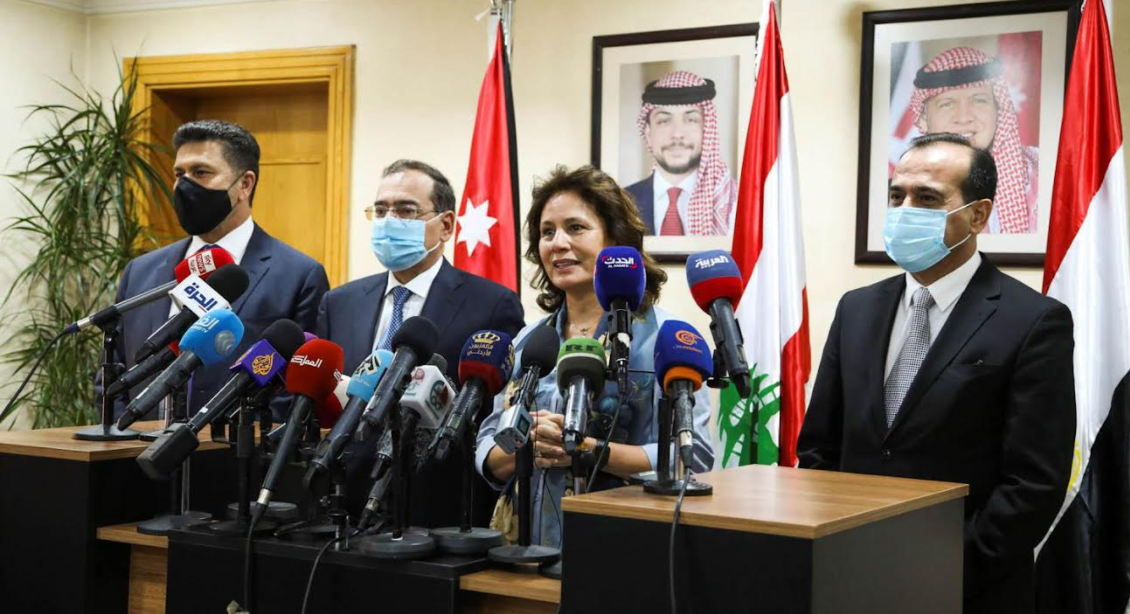Anas al-Abdah, head of the Syrian Negotiating Committee, said that the U.S. State Department has informed him that there will be no exception to the Caesar Act sanctions regime to facilitate the passage of Egyptian gas into Lebanon through Jordan and Syria as part of an energy deal.
At a press conference on Thursday, Abdah said that he had contacted the State Department, which told him that “there is still no letter of reassurance or an exception letter from the Biden administration excluding this arrangement from the Caesar Act.”
“Everything in the Lebanese press on this subject is baseless,” Abdah said.
Abdah’s statement came despite confirmation from U.S. Ambassador to Lebanon Dorothy Shea that the U.S. Treasury had handed a “written official letter” to the Lebanese government facilitating the passage of Egyptian gas to Lebanon through Syria as an exception to the Caesar Act.
“There will be no concerns about the U.S. Penal Code. This letter represents a step forward and a major event as we continue to make progress towards achieving more sustainable and clean energy to help address the energy crisis facing the Lebanese people,” U.S. diplomatic sources said on January 14th.
Read Also: Jordan Top Diplomat Discusses Caesar Act Exemptions in Washington
Abda’s statement also coincides with the Jordanian Ministry of Energy and Mineral Resources’s appointment—scheduled for next Wednesday—to sign a contract to supply Lebanon with electricity from Jordan.
On its official website, the Jordanian Ministry of Energy said that the date had been agreed between Lebanese Minister of Energy and Water Walid Fayyad, Jordanian Minister of Energy, and Mineral Resources Saleh al-Kharabsheh, and Syrian regime Minister of Electricity Ghassan al-Zamil.
The Jordanian delegation is expected to arrive in Beirut in January to sign the contract. Afterward, the Jordanian and Lebanese delegations will travel to Syria to sign the transit agreement.
The contract provides for 150 megawatts of mains electricity for Lebanon from midnight until 6 am, and 250 MW during the rest of the day.
This article was translated and edited by The Syrian Observer. The Syrian Observer has not verified the content of this story. Responsibility for the information and views set out in this article lies entirely with the author.


